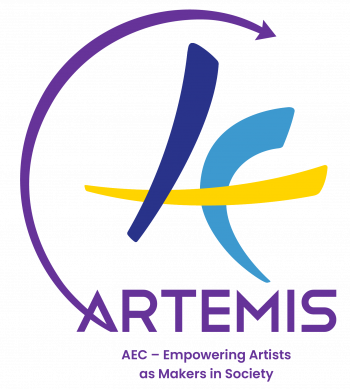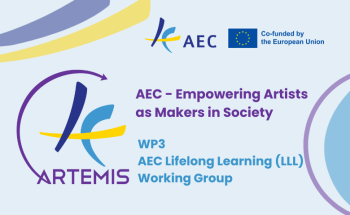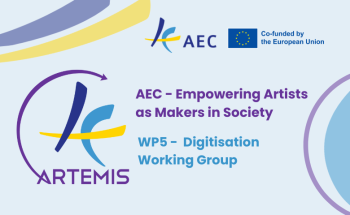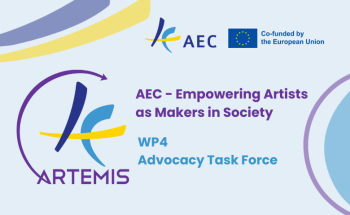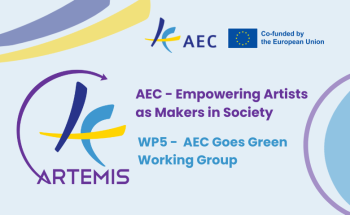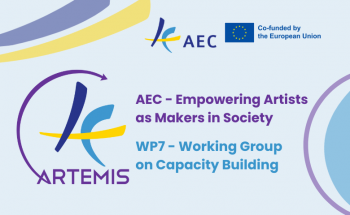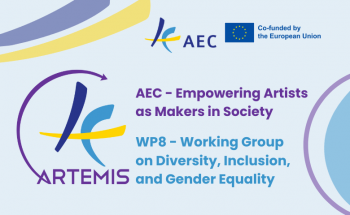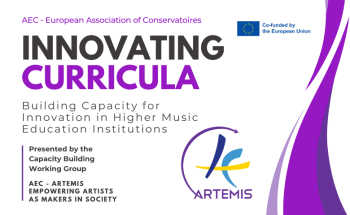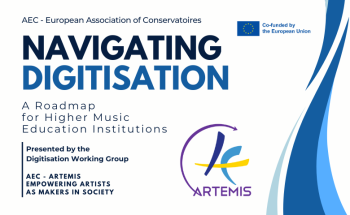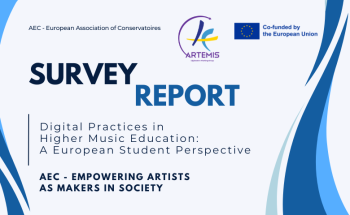WP1. Project management and coordination
Objectives Work Package 1
⇒ Ensuring efficient and high-quality management of the project and constant improvement in its implementation, fed by internal and external feedback
The following tasks are foreseen in Work Package 1 (WP1):
- Managing the project
The AEC Office Team (OT) will be responsible for the day-to-day management of the project (administrative, technical and financial). The OT consists of 7 staff members. The entire team of the AEC Office will be involved in the management of the project in order to 1) benefit from the variety of expertise of the OT and 2) strengthen the commitment of the entire team to this project. OT members will be responsible to coordinate the Work Packages (WP) and will provide support and guidance to the corresponding Working Groups (WGs) and Task Forces (TFs).
There will be 8 WGs and 3 TFs responsible to manage the task(s) which they are assigned to and to deliver the project outcomes. They will be chaired by an individual recruited from start to act as chair and their members will be recruited through open calls. Compared to WGs, TFs are smaller groups of individuals (2 to 4).
- Monitoring, internal evaluation and ensuring the implementation of the cross-cutting and transversal priorities
The ARTEMIS Steering Committee (SC) will be responsible to monitor the entire project. The SC is composed of 2 representatives of AEC Executive Committee (i.e. AEC President, and Vice-President) – one of them acting as SC Chair – and of the Chairs of the 8 WGs. In addition, the 7 OT members will attend the meetings and contribute to the discussions.
The SC will meet 3 times a year (2 in person and 1 online). The meetings will be organised and prepared by the OT. The project progress will also be presented to the AEC Council for further feedback and input.
The SC will pay particular attention in its monitoring of the following cross-cutting and transversal priorities:
- Student empowerment (WP4)
- AEC Goes Green and Digitisation (WP5)
- Non-discrimination mainstreaming (WP8)
Internal communication will take place through:
- Meetings within each WP (WG and TF meetings), as well as transversal meetings (OT meetings every 2 months, SC meetings 3 times per year). To ensure efficiency of all meetings, the OT and the Chair prepare an agenda listing the points to be discussed and decided upon and a set of material
- A Slack platform for the project, which combines the benefits of email, the reactive speed of text messaging and the accessibility of social networks. A general channel will be open to all individuals active in the framework of the project, and specific channels for each WG and TF
- An annual Synergies Meeting, gathering all individuals involved in the project
- External evaluation
MusiQuE – Music Quality Enhancement – specialised in accreditation and evaluation in the Higher Music Education (HME) sector, will appoint an external Quality Assurance (QA) Committee at the beginning of the project, consisting of 3 international peer experts from the field of HME, appointed based on their expertise in the music sector and on their experience with evaluation.
Each of these ‘critical friends’ will be responsible to monitor 2 to 3 WPs, attend 1 project activity per year, and write 2 reports (a short interim report by M18 and a short final report by M30). The reports will identify strengths and weaknesses in the WPs, assess the efficiency and relevance of the project activities and the outcomes of each WP and ultimately assess the deliverables; the interim report will also include recommendations for the further development of the WP tasks and deliverables.
To assist the ‘critical friends’, MusiQuE will provide them with a template for their reports, including guidelines and indicators. The ‘critical friends’ will be invited to attend online the SC meeting following the delivery of their report in order to directly explain their findings and recommendations to the SC and OT members.
The evaluation will be carried out on the basis of the standards and evaluation criteria developed by MusiQuE, in particular on a set of criteria tailormade for project evaluation. These criteria were developed in accordance with the ‘Standards and Guidelines for Quality Assurance in the European Higher Education Area’ (ESG) and can, if necessary due to the particular context, be modified according to the special requirements of the project.
- Reporting on the project to the EACEA
The OT will take responsibility for preparing the annual reports on progress for the EACEA (to be checked by the SC).

